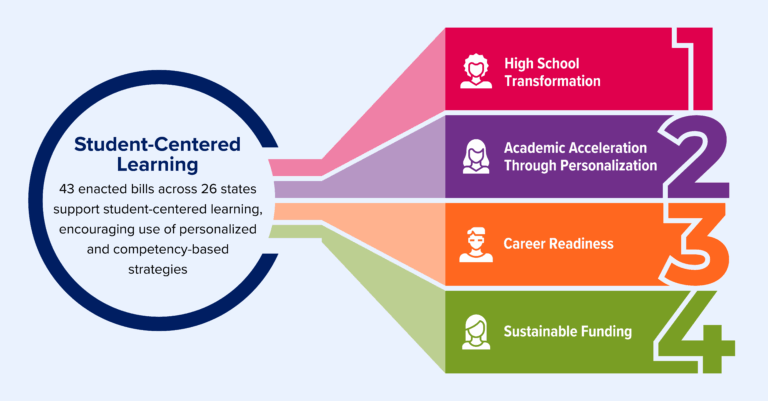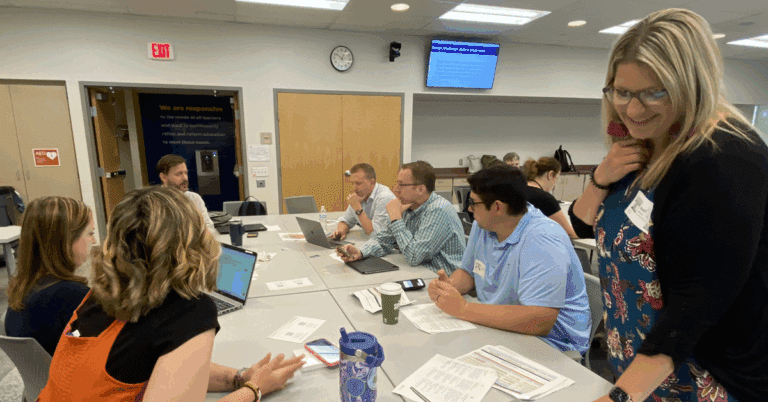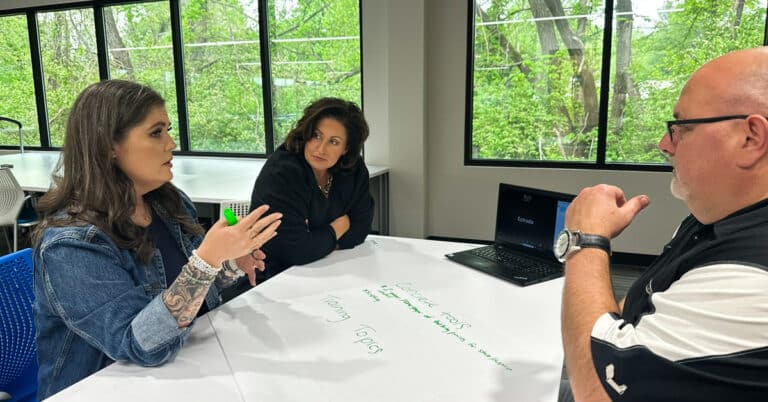In our work to spread and scale personalized, competency-based learning, KnowledgeWorks often discuss competencies as measurable, transferable learning objectives that empowers students. But core competencies can also be applied when building the right team to move transformative education work forward. Strong district leadership is essential for new learning models to take shape and take hold.
Here are seven essential competencies needed for strong district leadership.
1. Collaborative Leadership
As more partnerships emerge to support personalized, competency-based education as a vehicle for advancing equity, it is imperative school leadership be actively engaged in ongoing efforts to involve institutions, community organizations and families in creating a shared vision for teaching and learning.
2. Transparent Communications
More than ever, it is important that school leadership consistently shares comprehensive information and data about the school district to multiple stakeholders. Such information is not always flattering or easily communicated, but in order to build credibility and trust with the public, full transparency is required.
3. Inclusive Decision-Making
Solutions to educational challenges will not come from institutions alone. They emerge from the expertise and lived experiences of those who are most directly impacted, most notably parents, caregivers and students. Soliciting community problems-solvers and co-designers while creating learner-centered strategies and interventions is key to success.
4. Boldness to embrace challenges
There are many challenges ahead and leaders should be willing to unabashedly identify these challenges, own them and discuss directly how they will be addressed.
5. Readiness to Innovate
New approaches to education, such as personalized, competency-based learning, requires that a leader is adept at spotting best practices from within the district as well as from outside of it — nurturing and replicating those practices to accelerate progress.
6. Constructive Relations with the Board of Education
Leadership who can facilitate constructive and productive working relations with the education board will go a long way toward solidifying community trust and producing tangible results.
7. Systems-Thinking Orientation
Large bureaucracies whose functions operate more like interdependent networks rather than isolated silos have greater success. Thinking and leading in ways that require cross-collaboration and teamwork will help propel the district’s progress toward achieving transformational goals.




